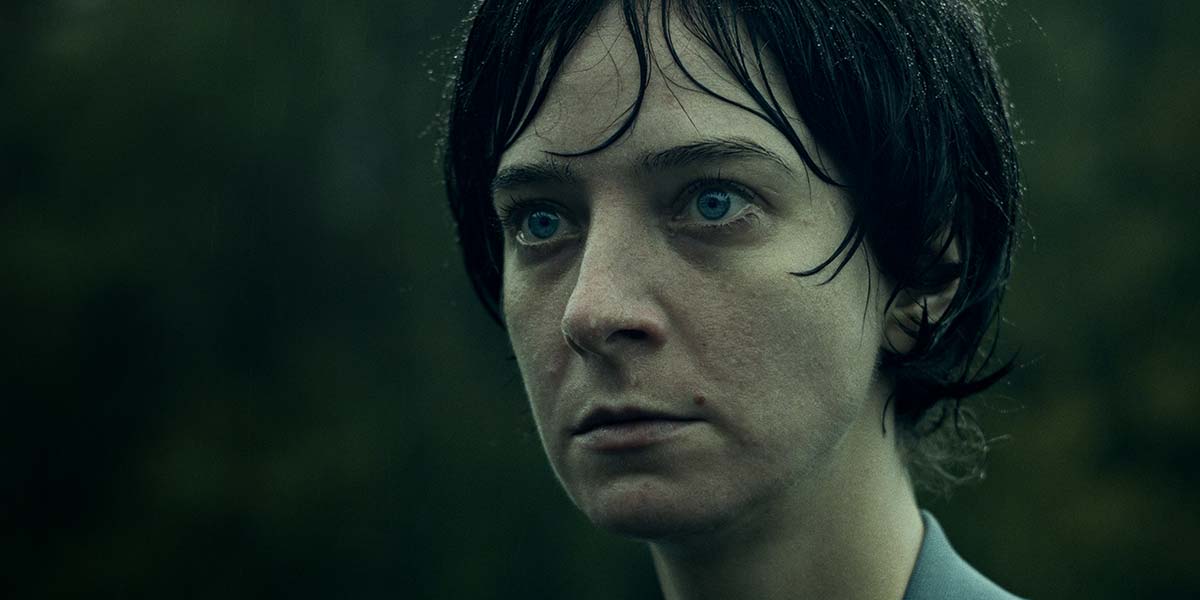Midnight Madness has always been one of my favorite programs at the Toronto International Film Festival, but part of the joy of that program is usually seeing how crowds respond to a movie’s jumps and shocks being revealed for the first time in the entire world. While that aspect of the TIFF horror experience was gone this year, it still produced two genre entries that I suspect will find loyal fans when they descend from the virtual TIFF program and are available to everybody. While very different in tone, they’re both about the importance of believing women, both directed by female directors, and both films that I really wish I could have seen with a crowd. For the record, there was a third MM film this year, “Get the Hell Out,” but I made it only about 15 minutes in before its aggressive tone proved too much for me. It may get better, but my early response was that what Takashi Miike and Sion Sono do is harder than it looks.
On to the good stuff. I’ll start with Madeleine Sims-Fewer and Dusty Mancinelli’s unflinching and brutal “Violation,” a film that doesn’t shy away from its dark subject matter and doesn’t fall into the typical traps of its often-exploitative subgenre, the rape revenge thriller. Sims-Fewer and Mancinelli open their film with a slo-mo shot of a wolf chewing on a rabbit, but the film isn’t a traditional story of a betrayed woman overcoming trauma through violence. Movies about vengeance over sexual violence often feel shallow in how they capture both the actual inciting incident and the retaliation, but Sims-Fewer and Mancinelli drown their film in devastating pain. None of this is right. None of this is good. None of this is redeeming. It’s a film washed in pain and fractured mental states, amplified by a time-jumping narrative that actually makes the movie more powerful instead of less. I’ve seen a lot of films lately that play with chronology, but it makes more sense here as the rape and the vengeance become intertwined.
Sims-Fewer also stars as Miriam, and gives a fantastic performance as a woman who in a relatively unhappy marriage with a man named Caleb (Obi Abili). In the opening scenes, we see them go to a weekend retreat at a cabin with Miriam’s sister Greta (Anna Maguire) and Greta’s husband Dylan (Jesse LaVercombe). Everyone seems to be getting along fine but then Sims-Fewer and Mancinelli jump to another timeline in which Greta and Miriam are fighting about something. These relationships are strained. And then they place what would be the climactic scene in most linear vengeance thrillers right in the center of the piece, a stunning sequence in which Miriam, well, putting it into words wouldn’t really do it justice.
“Violation” got me thinking about other rape vengeance thrillers that typically turn the act into one of reclaimed power. That’s inherently going to be a part of any of these films, but the tone from Sims-Fewer and Mancinelli here feels less celebratory and more deeply melancholic. The film is filled with minor decisions that lead to the major, violent ones that define it, both within the story and the filmmaking. It’s a smart, emotionally shattering piece of work.

Finally, there’s a film with pretty much the exact opposite tone but a similar throughline of believing women, whether they’re telling you about an assault or a gremlin on the wing of a plane. Yes, Roseanne Liang’s “Shadow in the Cloud” is basically the “Nightmare at 30,000 Feet” episode of “The Twilight Zone” blended with “Aliens,” and parts of it are exactly as fun as that elevator pitch sounds. This is some goofy, wacky storytelling, and most of it works, coming in at a stealthy 82 minutes to wow you with impossible action sequences and send you on your way. The crowd at the Ryerson in Toronto would have been screaming.
It’s 1943 and Maude Garrett (Chloë Grace Moretz) has been assigned to a B-17 Flying Fortress at the last minute, rushing on board just before it takes off and just before the all-male crew can really object. They shove her in the turret under the plane, promising to take care of the important package she brought with her on the journey. Over comms, they crack jokes about her looks and experience, wondering how she even got there. Its toxic masculinity literally ringing in her ears as she panics about them figuring out her several secrets and thinks maybe she sees an enemy fighter on their tail. And then she spots a legitimate gremlin on the wing and things get really weird.
“Shadow in the Cloud” is defiantly ridiculous, full of so many WTF sequences that its general lack of common sense or realistic action will be too much for some viewers to take. For me, after a week in which most movies looked and felt like they had been polished down to a gray paste, I kind of loved seeing something so ridiculous in every way. Moretz carries the film well and it looks good, even the practical effects work with the gremlin. Much has been made of the movie’s origin, from a script by a disgraced screenwriter who won’t go named here because too many people worked on this movie since his departure to let it dominate the conversation, but I do feel like a lot of the film’s flaws, especially in the clunky final 20 minutes, are probably his fault. Luckily, they threw him out the hatch window of this flight before he could take it down, bringing the final project in for a relatively smooth landing, and closing my TIFF 2020 experience with one of the few films from this year that I’m positive I won’t forget.












